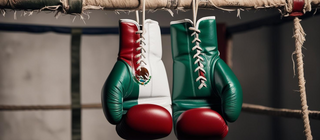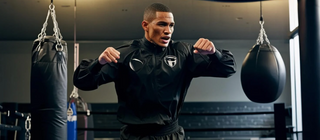How to Become a Boxer. Earnings and Opportunities
The sport of boxing has long captured the imaginations of athletes, fans, and fitness enthusiasts worldwide. Beyond its storied history and legendary champions, boxing offers a unique blend of physical conditioning and mental discipline, driving many to pursue it not only as a hobby but also as a career path. If your dream is to step into the boxing ring and make a name for yourself, it’s important to know what lies ahead. From choosing the right gym to understanding how earnings and sponsorships work, each step is crucial in shaping your journey toward becoming a successful professional boxer.
At What Age to Start Boxing
One of the most common questions aspiring fighters ask is: “When is the right time to start boxing?” In truth, there’s no universal rule. Some children begin around the age of six or seven, engaging in playful activities that introduce the basics: proper stance, footwork, and light movement drills. At this stage, the goal is to foster coordination, agility, and a love for the sport, rather than diving into full-contact sparring.
Many coaches recommend starting more structured training by the time a young athlete reaches 12 or 13. The body is typically more developed, making it easier to absorb techniques and handle more rigorous workouts. This timeframe also allows enough years of practice before potentially transitioning to serious amateur competitions or even professional circuits.
That said, adults who take up boxing later in life can still achieve impressive results, whether they aim to compete at an amateur level or simply want to improve their fitness. The key factor is dedication. If you’re willing to commit to a solid training routine, maintain a healthy lifestyle, and consistently push your limits, you can make meaningful progress at almost any age.
How to Choose the Right Gym
Selecting a gym is a pivotal step when embarking on your boxing journey. A facility’s atmosphere, the competence of its staff, and the presence of promising fighters can all contribute to your development. While high-quality equipment is certainly a bonus, the most critical elements are the people you work with and the coaching style you are exposed to.
Scegliere la palestra in base al curriculum sportivo degli istruttori/allenatori
Before committing to a particular gym, investigate the professional background of its coaches. A trainer who has fought at a high level understands the pressures of the ring and can offer actionable insights on technique and mindset. Additionally, check whether the coaches hold certifications from recognized organizations. Formal credentials often indicate they’ve undergone rigorous training in teaching methods, safety protocols, and effective training techniques.
Scegliere la palestra in base a quanti campioni sono usciti da quella palestra
Another useful benchmark is how many top-level fighters have emerged from that particular gym. If multiple champions or titleholders began their careers there, it suggests a proven track record of turning raw talent into formidable competitors. However, do not dismiss newer or lesser-known facilities. Sometimes, an up-and-coming gym can surprise you with dedicated, knowledgeable staff who are fully invested in guiding each individual to success.
How Much Training Is Needed to Become a Professional Boxer
Boxing is demanding, both physically and mentally. When you first start, you might attend classes two or three times a week, focusing on fundamental techniques: the jab, cross, hook, uppercut, and defensive maneuvers. Gradually, as you gain confidence, you’ll introduce sparring sessions where you apply what you’ve learned against a live opponent.
For those aiming to become a professional boxer, expect to ramp up your schedule significantly. Professional fighters often train five to six times a week, if not daily, sometimes integrating two workouts a day. These sessions typically include:
- Technical Drills: practicing specific punches and footwork, working on pads, and drilling combinations repetitively to perfect form.
- Sparring: controlled matches that simulate real fight conditions, focusing on offense, defense, and ring strategy.
- Strength & Conditioning: resistance training, cardiovascular exercises, and plyometrics to build stamina and power.
- Recovery: stretching, massage, rest days, and a well-structured nutritional plan to help the body recover and adapt.
Becoming a professional boxer means turning boxing into a lifestyle. Alongside intense training and improved technique, mental toughness and dedication to proper sleep and nutrition become non-negotiable. Consistency is paramount, and small details—from foot placement to posture—can make the difference between victory and defeat.
What Costs Are Involved in Boxing
Like any sport, boxing comes with associated expenses that vary based on your skill level and objectives. Starting out is generally more affordable, but as you progress toward the professional ranks, costs tend to increase.
When You’re Just Starting
The initial investment primarily involves your gym membership, which can range from around 30-40 euros per month in smaller towns to 70-80 euros or more in major cities, depending on amenities. You’ll also need essential boxing gear, such as gloves, hand wraps, and a mouthguard. These items typically cost between 50 and 150 euros total, depending on the brands you choose. Some gyms offer communal equipment, but having your own ensures proper fit and hygiene.
When You’re a Professional Boxer
At the professional level, expenses increase significantly. You may hire a dedicated coach or even a team of professionals (including nutritionists and strength trainers), especially if you’re preparing for title bouts or major events. Often, payment arrangements involve a fixed monthly fee or a percentage of the purse from your matches. Additional costs, such as traveling for fights, lodging, and compensating support staff (like cutmen or corner assistants), can also add up. Higher-level fighters typically invest in premium boxing gear, advanced recovery programs, and specialized training camps to gain a competitive edge.
How Much Does a Professional Boxer Earn
Earnings in boxing generally come from two primary sources: purses (the money you receive for fighting) and sponsorship deals. While some boxers manage to make a comfortable living solely from the sport, it’s crucial to recognize that boxing incomes can vary dramatically based on factors like experience, reputation, and competition level.
Purses
Early in a career, purses might only amount to a few hundred euros per fight. As you accumulate victories and build a name for yourself, these figures can rise into the thousands or tens of thousands. Only a select few, often contenders in major promotions or champions in marquee divisions, ever see six- or seven-figure purses. The sport’s global superstars—like Floyd Mayweather or Canelo Álvarez—can earn millions per bout, but reaching that echelon demands exceptional skill, marketability, and sometimes a bit of luck.
Sponsorships
Sponsorship packages can significantly boost a fighter’s overall earnings. As you gain prominence, local businesses and larger brands may be interested in associating themselves with your image. In return for financial support, you might wear branded clothing during weigh-ins or mention sponsors in interviews. For fighters who regularly appear in televised matches or big venues, sponsorship deals can become a vital source of revenue, often matching—or even exceeding—the purse itself. Building a social media presence and maintaining a professional image can also help attract sponsorship opportunities, expanding your earning potential.
While only a fraction of boxers ever reach elite status and reap multi-million-dollar rewards, it’s still possible to carve out a decent living through consistent performances, smart career choices, and savvy networking. Many professional fighters supplement their earnings by working as personal trainers, teaching boxing classes, or investing in other business ventures outside the ring.
Ultimately, the path to boxing success hinges on a combination of talent, hard work, and strategic decision-making. Whether you dream of stepping onto a world-class stage or simply wish to compete at an amateur level, the sport offers a host of personal and financial opportunities. By choosing the right gym, dedicating yourself to relentless training, and managing your earnings smartly, you stand the best chance of turning your boxing aspirations into a reality.







